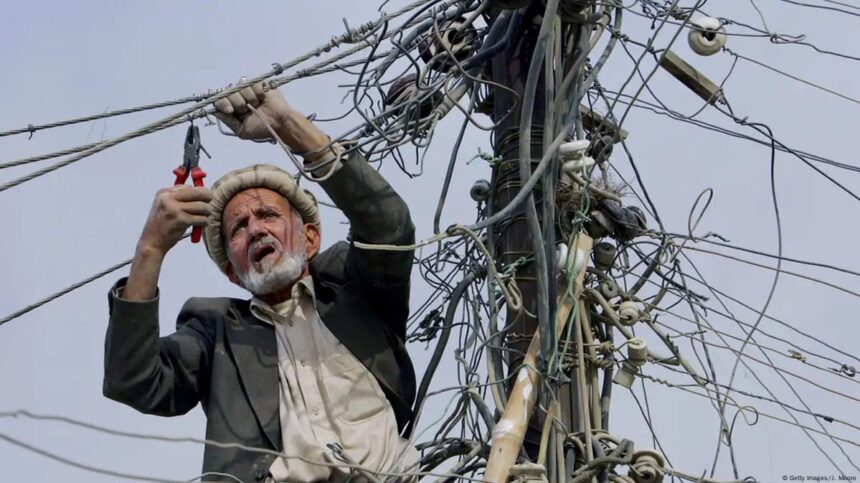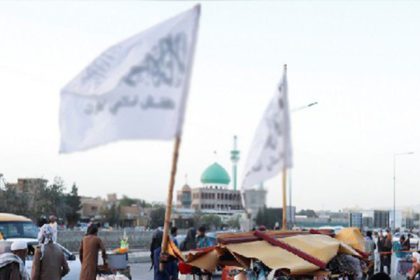RASC News Agency: As an unprecedented heatwave sears across Afghanistan, millions of citizens are enduring life-threatening temperatures without access to reliable electricity. Widespread, prolonged power outages have left families vulnerable to the oppressive heat, forcing them to survive without essential cooling devices or even basic amenities. In the western province of Herat, temperatures have soared above 45 degrees Celsius, yet residents report that power cuts are a daily reality often lasting for the majority of daylight hours. Without electricity, households are left to endure the sweltering heat in near-total darkness, with many lacking fans, air conditioners, or even access to running water.
Medical professionals at Herat Regional Hospital have sounded an urgent alarm: sustained exposure to extreme heat, coupled with the absence of electrical power and cooling infrastructure, poses a grave threat to children, the elderly, and patients with chronic conditions. The hospital has recorded a sharp increase in cases of heatstroke, severe dehydration, and other heat-related illnesses, all exacerbated by the energy crisis. “Without consistent electricity, we cannot operate cooling systems or store essential medications,” said a senior physician. “Each blackout translates directly into more suffering and more lives at risk.”
The crisis extends beyond households to Afghanistan’s fragile small businesses. Shopkeepers in both Herat and Kabul report catastrophic losses as recurring blackouts cause perishable goods milk, yogurt, eggs, and meats to spoil. Many vendors have ceased selling refrigerated items altogether, prioritizing public health but suffering severe financial consequences. “We are forced to discard entire stocks due to spoilage, with no compensation,” said a Kabul shop owner. “These losses fall squarely on our shoulders, threatening our livelihoods.” In Kabul, residents describe a sporadic and unreliable power supply, with electricity available for less than 14 hours per day, typically during off-peak, inconvenient nighttime hours. The electricity is almost entirely cut off during the hottest daytime hours, rendering fans and cooling devices useless when they are desperately needed.
This energy crisis is far from seasonal. In winter, Afghanistanis face equally devastating conditions: blackouts leave homes freezing and hospitals unable to operate heating systems, leading to increased respiratory diseases and cold-related fatalities. Despite possessing vast water resources and untapped hydropower potential, Afghanistan’s domestic energy generation remains severely underdeveloped. Decades of relentless conflict, chronic infrastructure neglect, and profound governmental mismanagement now deepened under Taliban rule have left the country dependent on electricity imports for more than 85% of its needs.
Since the Taliban seized power in August 2021, the regime has made no tangible progress in rebuilding or modernizing the national power grid. Instead, the Taliban have diverted resources toward repressive policies, military consolidation, and ideological enforcement, leaving critical sectors such as energy, health, and public welfare in ruins. The regime’s systematic exclusion of women from the workforce, including the energy sector and humanitarian services, has further crippled capacity and stalled any meaningful recovery. This gender-based exclusion intensifies the hardships faced by Afghanistani families, particularly women and children.
“Our homes are engulfed in darkness both literally, and metaphorically,” lamented a Herat resident. “There is no relief, no support, and no accountable leadership to heed our suffering.” This prolonged and deepening power crisis is emblematic of the Taliban’s broader failure to govern effectively. Their utter disregard for the basic needs and human rights of the Afghanistani people has compounded an already dire humanitarian emergency.
With climate change driving temperatures ever higher, Afghanistan already one of the most vulnerable nations on the planet faces a catastrophic convergence of environmental extremes and political neglect. The international community’s aid efforts are continually undermined by Taliban interference and obstruction, leaving millions trapped in a cycle of suffering. Unless the Taliban halt their ideological obstruction, allow inclusive governance, and prioritize rebuilding vital infrastructure, Afghanistan’s energy and humanitarian crises will deepen further threatening the very survival of its people.






